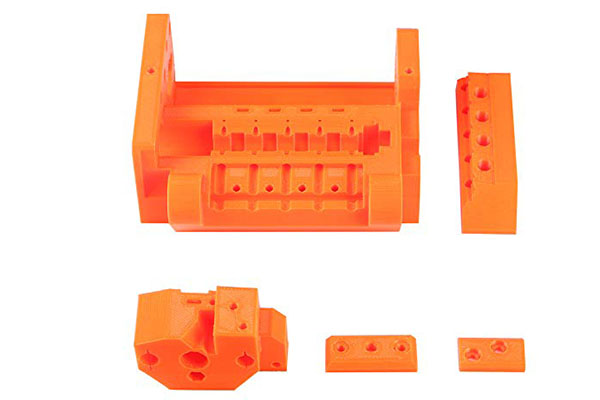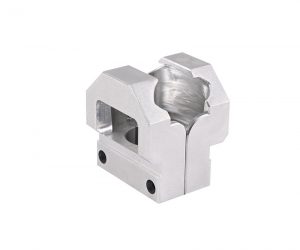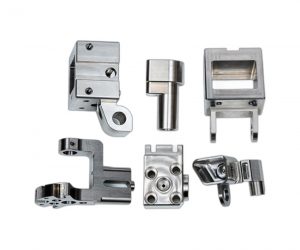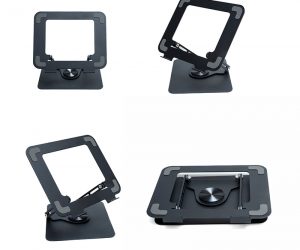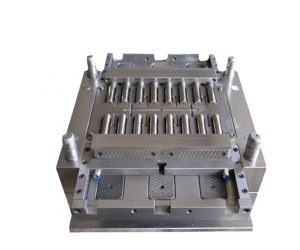1. The Evolution of Precision in Manufacturing
1.1 From Tolerance to Nano-Tolerance: A Paradigm Shift
In the annals of manufacturing, the concept of precision has undergone a remarkable transformation. Traditional manufacturing was once content with tolerances in the ±0.1mm range. This was the norm for a long time, and it served industries well in producing a wide array of goods. However, as technology advanced, the demand for greater precision became increasingly evident.
The advent of modern precision engineering has been nothing short of revolutionary. Today, achieving an accuracy of ±0.001mm is not just a possibility but a standard in many high - tech manufacturing processes. Take, for Yigu Technology example, the aerospace industry. Components within aircraft engines or guidance systems require an astonishing level of precision. The concentricity of certain aerospace components must be maintained within 0.002mm. To put this into perspective, compared to the standards of the 1990s, this represents a 50 - fold improvement.
This shift towards nano - tolerance has been driven by several key factors. Advancements in Computer Numerical Control (CNC) machining have played a pivotal role. CNC machines are now capable of making incredibly fine - tuned movements, controlled by sophisticated software algorithms. These machines can precisely carve, mill, or drill materials with a level of accuracy that was previously unimaginable.
Metrology, the science of measurement, has also made significant strides. New and improved measurement tools, such as high - precision coordinate measuring machines (CMMs) and laser interferometers, can detect even the slightest deviations in a component's dimensions. These tools provide real - time feedback during the manufacturing process, allowing for immediate adjustments to be made to ensure the highest level of precision.
1.2 The Role of ISO Standards in Precision Benchmarking
International Organization for Standardization (ISO) standards play a crucial role in setting global benchmarks for precision in manufacturing. Two such standards, ISO 2768 for geometric tolerancing and ISO 17025 for calibration, are particularly significant.
ISO 2768 provides a comprehensive set of rules for geometric tolerancing. It defines the allowable variations in the shape, orientation, and location of features on a part. This standard is applicable across a wide range of industries, from automotive to electronics. By adhering to ISO 2768, manufacturers can ensure that their components are interchangeable and fit together correctly during the assembly process.
ISO 17025, on the other hand, focuses on the competence of testing and calibration laboratories. It sets out the requirements for laboratories to demonstrate their technical capabilities, management systems, and the quality of their calibration and testing services. This standard is essential for ensuring that the measurement equipment used in manufacturing processes is accurate and reliable.
A 2025 survey conducted across various manufacturing sectors revealed some compelling statistics. Companies that strictly adhered to these ISO standards experienced a 40% reduction in rework costs compared to their non - compliant counterparts. Rework is not only costly in terms of materials and labor but also in terms of time. By getting the manufacturing process right the first time, companies can save significant resources.
2. Key Drivers of Precision Revolution
2.1 Advanced CNC Machining Technologies
Advanced CNC machining technologies have been at the forefront of driving the precision revolution in manufacturing services. One of the most significant advancements is the development of 5 - axis CNC machines. These machines are a far cry from their predecessors, offering a level of flexibility and precision that was once unattainable.
A 5 - axis CNC machine is capable of simultaneous movement along five axes—three linear (X, Y, Z) and two rotational (A and B or C). This multi - axis movement allows the tool to approach the workpiece from almost any angle. In the aerospace industry, for Yigu Technology example, complex turbine blades with intricate airfoil shapes can be machined with exceptional precision. The traditional 3 - axis machines would struggle to create such complex geometries, often requiring multiple set - ups and additional machining operations. With 5 - axis machines, these parts can be machined in a single operation, reducing the cumulative errors associated with multiple set - ups.
Another crucial feature of modern CNC machines is the integration of thermal compensation systems. During the machining process, heat is generated due to the friction between the tool and the workpiece. This heat can cause the machine components to expand, leading to dimensional inaccuracies in the final product. Thermal compensation systems use sensors to monitor the temperature of critical machine components in real - time. Based on the temperature data, the machine's control system automatically adjusts the tool path to compensate for the thermal expansion.
The impact of these advanced CNC machining technologies on precision is remarkable. They can now produce surface finishes as low as 0.4μm Ra (Ra = roughness average). In the past, achieving a surface finish below 1μm Ra was a challenging task. A low - roughness surface is crucial in applications such as optical components, where even the slightest surface irregularities can affect the performance.
Hole positional accuracy within ±0.005mm is also achievable with these advanced machines. In the automotive industry, for instance, engine blocks require precise hole placement for the installation of pistons, valves, and other components. Precise hole placement ensures proper alignment and functionality, reducing the risk of leaks, misfires, or premature wear.
Moreover, the cycle time for complex geometries has been reduced by 35%. This not only increases productivity but also allows manufacturers to meet tight deadlines. For a company that produces custom - designed parts for the medical device industry, a shorter cycle time means that they can get their products to market faster, potentially saving lives.
The following Yigu Technology table summarizes the performance improvements of advanced CNC machining technologies compared to traditional machining:
| Parameter | Traditional Machining | Advanced CNC Machining |
| Surface Finish (Ra) | 1 - 3μm | 0.4μm |
| Hole Positional Accuracy | ±0.05 - 0.1mm | ±0.005mm |
| Cycle Time for Complex Geometries | Longer | Reduced by 35% |
2.2 Additive Manufacturing Meets Precision
Additive manufacturing (AM), more commonly known as 3D printing, has emerged as a powerful force in the manufacturing landscape. Initially, AM was often associated with rapid prototyping, where the focus was on quickly creating a physical model of a design. However, recent advancements have seen AM evolving into a precision manufacturing technology, especially when combined with CNC post - processing in a process known as hybrid manufacturing.
One of the key advantages of AM is its ability to create complex geometries that are difficult or impossible to produce using traditional manufacturing methods. For Yigu Technology example, lattice structures, which are lightweight yet strong, can be printed directly using AM. In the aerospace industry, these lattice structures are used to reduce the weight of components without sacrificing strength. By reducing the weight of aircraft components, fuel efficiency is improved, leading to lower operating costs.
Hybrid manufacturing combines the design freedom of 3D printing with the precision of CNC machining. AM - printed titanium components can achieve a material density of 99.9%. Titanium is a popular material in aerospace and medical applications due to its high strength - to - weight ratio and corrosion resistance. Achieving such a high material density ensures that the printed components have the mechanical properties required for these demanding applications.
After the AM process, CNC milling is often used as a post - processing step. This can improve the surface finish of the printed component from 12μm to 0.8μm Ra. A better surface finish is essential for components that require tight tolerances and smooth surfaces, such as those in high - speed rotating machinery.
The lead time for aerospace prototypes has been reduced by 60% through hybrid manufacturing. In the past, creating a prototype for an aerospace component could take weeks or even months, involving multiple steps of design, machining, and testing. With hybrid manufacturing, the design can be quickly translated into a 3D - printed prototype, which can then be refined using CNC machining. This significantly reduces the time it takes to bring a new product from the design stage to the testing stage, allowing companies to innovate faster.
The Yigu Technology table below showcases the improvements brought about by hybrid manufacturing in additive - manufactured components:
| Parameter | AM - Only Components | Hybrid - Manufactured Components |
| Material Density | Varies, typically lower | 99.9% |
| Surface Finish (Ra) | 12μm | 0.8μm |
| Lead Time for Aerospace Prototypes | Longer | Reduced by 60% |
In conclusion, both advanced CNC machining technologies and the integration of additive manufacturing with precision post - processing are driving the precision revolution in manufacturing services. These advancements are not only improving the quality and performance of manufactured products but also enabling new design possibilities and reducing production times.
3. Precision-Driven Industries: Case Studies
3.1 Medical Device Fabrication
The medical device industry stands as a prime example of an industry where precision is not just a luxury but a necessity. The micromachining of stainless - steel orthopedic implants serves as a remarkable case study.
Thread pitch accuracy in these implants is maintained within ±0.001mm. This minuscule tolerance is crucial for ensuring a proper fit when the implant is inserted into the patient's body. A misaligned thread could lead to instability of the implant, causing discomfort to the patient and potentially compromising the effectiveness of the treatment.
The fatigue life of these precision - micromachined implants has seen a staggering 200% improvement over cast alternatives. Cast implants often have inherent defects and irregularities in their microstructure, which can act as stress concentrators and lead to premature failure. In contrast, the precise manufacturing process of micromachined implants results in a more uniform microstructure, enhancing their fatigue resistance.
3.2 Automotive Powertrain Components
In the automotive industry, precision is a key factor in the performance and efficiency of powertrain components. The precision honing of engine cylinders is a prime example of how precision can transform the performance of an automotive component.
Engine cylinders, after precision honing, achieve a diameter consistency within ±0.002mm. This high level of precision ensures that the pistons fit snugly within the cylinders. A consistent cylinder diameter reduces the likelihood of blow - by, which is the leakage of combustion gases past the piston rings. Blow - by can lead to a loss of engine power, increased fuel consumption, and higher emissions.
Precision honing also leads to a 15% reduction in friction within the engine cylinders. When the cylinder walls are smooth and have a consistent diameter, the pistons can move more freely. Reduced friction means that less energy is wasted in overcoming the resistance between the piston and the cylinder wall. This, in turn, improves the fuel efficiency of the engine. A more fuel - efficient engine not only saves the vehicle owner money on fuel costs but also reduces the vehicle's carbon footprint.
Another advantage of precision honing is the extended tool life. By using diamond - coated abrasives, the tool life can be extended by 50%. Diamond - coated abrasives are extremely hard and wear - resistant. They can withstand the high pressures and temperatures generated during the honing process for a longer time compared to traditional abrasives. This reduces the frequency of tool changes, increasing the productivity of the manufacturing process and reducing the overall cost of production.
Moreover, the use of precision - manufactured engine components can also improve the overall durability and reliability of the engine. Components that fit together precisely are less likely to experience premature wear and tear. This means that the engine will have a longer service life, reducing the need for costly repairs and replacements.
The following Yigu Technology table summarizes the improvements in automotive powertrain components due to precision manufacturing:
| Parameter | Traditional Manufacturing | Precision Manufacturing |
| Cylinder Diameter Consistency | Higher tolerance, less consistent | ±0.002mm |
| Friction in Cylinders | Higher | Reduced by 15% |
| Tool Life | Shorter | Extended by 50% |
In both the medical device and automotive industries, precision has redefined the standards of manufacturing. It has not only improved the performance and quality of products but has also opened up new possibilities for innovation and development.
FAQ
How can I ensure a manufacturing partner meets high precision standards?
Look for ISO 9001/13485 certifications, advanced metrology labs (CMM with 0.5μm uncertainty), and a track record in your industry. Request a process capability study (Cp ≥ 1.67 for critical dimensions).
How do manufacturers control thermal and vibration - induced errors in precision manufacturing?
Thermal stability is critical. Modern shops use temperature - controlled environments and software compensation to counteract expansion/contraction. Vibration damping and rigid fixturing also play key roles.
Is precision manufacturing cost - prohibitive for small - batch production?
Yes. Modular tooling (e.g., quick - change collets), cloud - based CAM systems, and MQL (minimum quantity lubrication) reduce upfront costs. Many precision shops offer tiered pricing for small batches.
